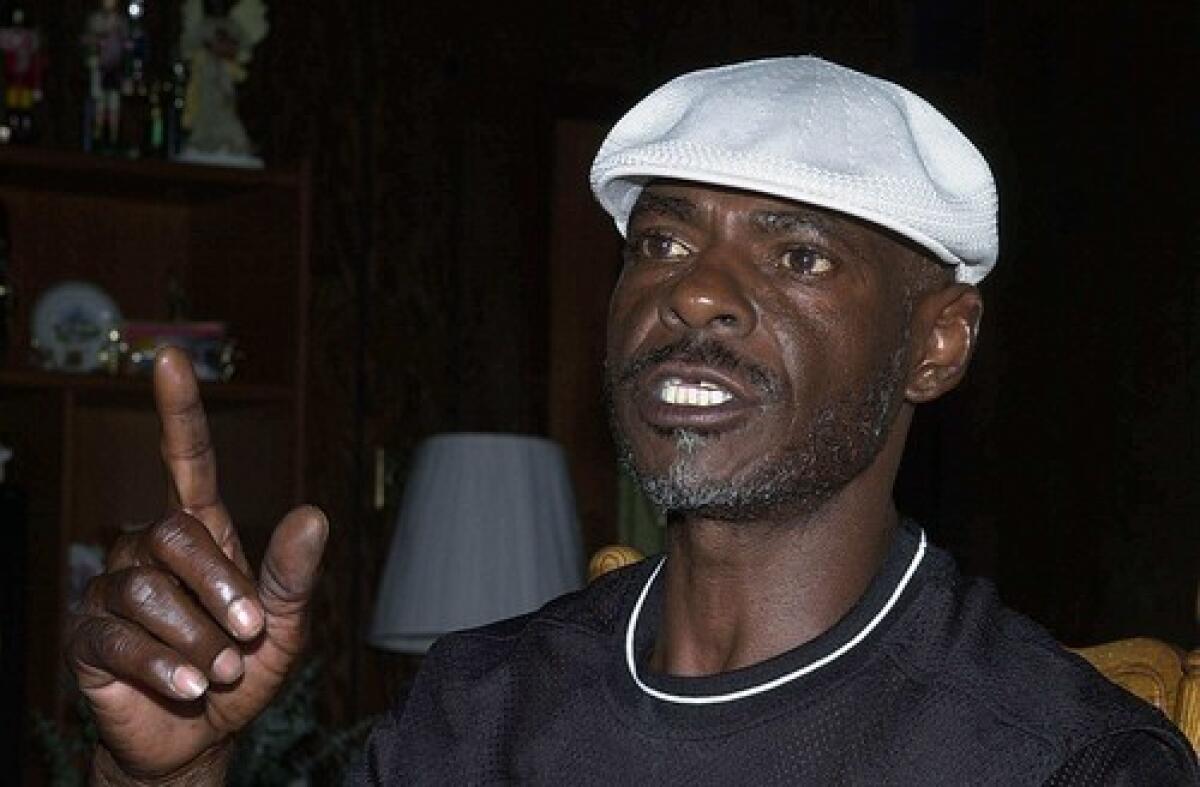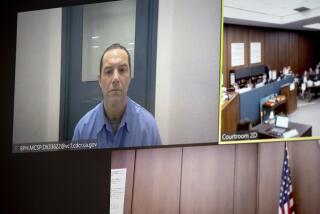Clyde Charles dies at 55; first inmate to sue under Civil Rights Act for DNA testing

Clyde Charles, the first inmate to use a federal civil rights law to sue for DNA testing that not only cleared him of a Louisiana rape conviction but also sent his brother to prison for the same crime, has died. He was 55.
Charles died Jan. 7 of natural causes at his home on Shrimper’s Row in Houma, La., relatives told the city’s Courier newspaper. His health problems included diabetes that required dialysis, they said.
He was the first inmate to sue under the federal Civil Rights Act to get his DNA compared with samples held as evidence, said Barry Scheck, co-director of the Innocence Project, a legal center specializing in wrongful conviction cases.
After Charles was sentenced to life in prison by an all-white jury for the 1981 rape and beating of a nurse who identified him as her attacker, he pleaded with authorities to conduct DNA testing against evidence collected in the case.
Although investigators had semen samples from the victim as evidence, the technology to compare DNA samples didn’t exist at the time of Charles’ trial.
“Back then you didn’t have DNA evidence, so you had to take the word of the victim and work with the evidence you had,” then-Det. Jerry Larpenter told the Associated Press in a 2000 interview.
Terrebonne Parish authorities agreed to have Charles’ DNA tested after Scheck, a former O.J. Simpson defense attorney, filed the civil rights lawsuit in 1999. When the DNA samples didn’t match, Charles was soon exonerated and released from prison just before Christmas that year.
The investigation then focused on his brother, Marlo.
During Clyde Charles’ trial, Marlo Charles testified that he had been near the crime scene (the brothers had been drinking at a nearby Houma home) and a court document named him as an alternate suspect. Marlo Charles’ DNA was on file in Virginia; authorities confirmed in 2000 that it matched the Louisiana evidence.
Marlo Charles was convicted in 2002 of the nurse’s rape and sentenced to life in prison at Louisiana’s Angola Prison.
Clyde Charles had a tough life after his release from prison. He was homeless for a time and suffering from post-traumatic stress disorder, nightmares and terrible pain from diabetes. His story was part of a documentary on the PBS series “Frontline” in 2000.
In early 2003, Charles was arrested on a charge that he had stabbed one of his brothers but released on $100,000 bail for intensive drug rehabilitation. That case was continued indefinitely in a deal brokered with state prosecutors.
“I wish I could tell you they lived happily ever after. But they didn’t,” Scheck said.
Survivors include five brothers and four sisters.
More to Read
Start your day right
Sign up for Essential California for the L.A. Times biggest news, features and recommendations in your inbox six days a week.
You may occasionally receive promotional content from the Los Angeles Times.






